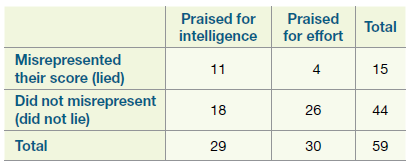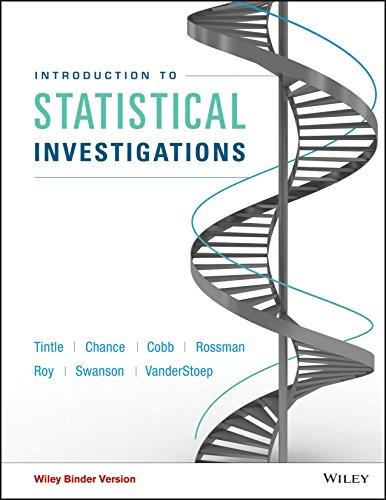Psychologists investigated whether praising a childs intelligence, rather than praising his/her effort, tends to have negative consequences
Question:

a. Identify the explanatory and response variables in this study.
b. For each group, determine the proportion who lied and identify them with appropriate symbols.
c. Describe how you could use index cards to conduct a simulation analysis for determining whether the difference between these proportions is statistically significant.
Include the following information in your description:
i. How many cards you would use
ii. How many would be marked how
iii. How many you would deal out
iv. Which kinds of cards you would count
v. What you would compare the results to after you conducted a large number of repetitions
d. Use the appropriate applet to conduct a simulation with 1,000 repetitions. Sketch the resulting histogram, labeling the axes appropriately, and report the p-value from the applet.
e. Provide a complete, detailed interpretation (in one or two sentences) of what this p-value means in this context (i.e., probability of what, assuming what?)
f. Summarize your conclusion about whether the data provide evidence that praising a child€™s intelligence leads to more negative consequences than praising his/her effort.
Be sure to address the issue of causation as well as the issue of significance.
Step by Step Answer:

Introduction To Statistical Investigations
ISBN: 9781118172148
1st Edition
Authors: Beth L.Chance, George W.Cobb, Allan J.Rossman Nathan Tintle, Todd Swanson Soma Roy





